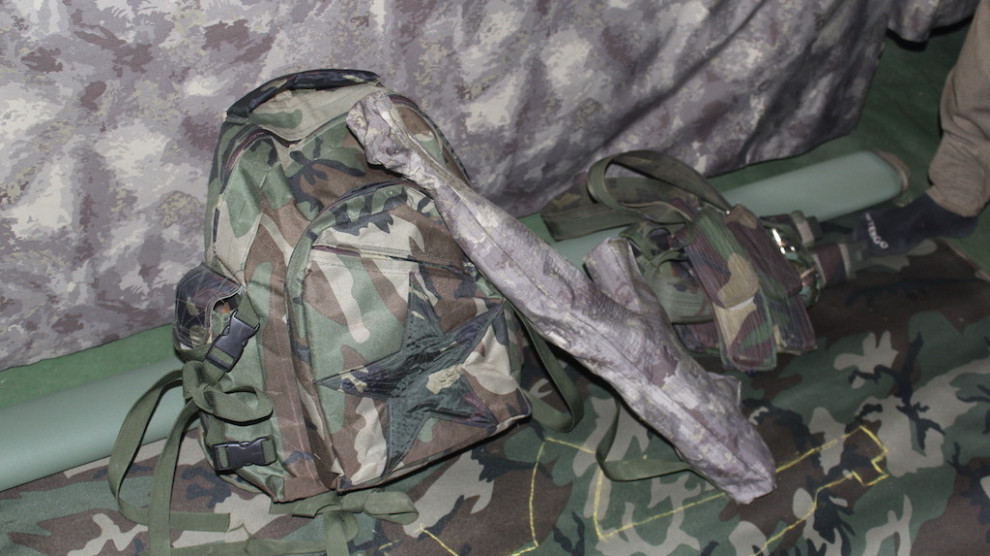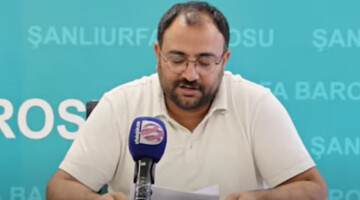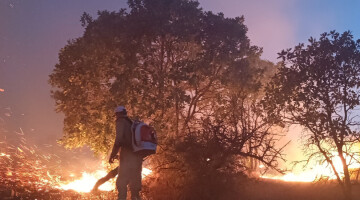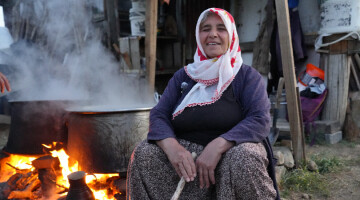We start to hear a hum as we walk on the green paths. Spring has sprung, as all around us mother nature explodes into green we are cut off by streams rushing to the valleys from high in the mountains. We think the humming could be the sound of water, but it feels like it is getting bigger, or closer to us, taking advantage of our advance.
A moment comes when we feel we are walking directly towards the sound. The guerrilla who is guiding us as he knows the land gives no hint, his expression says, “I don’t know either”. Ten minutes later we see that we are walking towards a generator. Our unyielding guide says, “This is the tailoring workshop.”
The long winded struggle for freedom by the Kurdistan guerrilla continues to spread throughout various lands. It is the subject of another, more academic study to make sociological analysis of elements kept going for such a long time, but today an important subject is the guerrilla’s “professionalization”, alongside concepts like faith, comradery, purpose and fighting colonialism.
YOU DON’T FIND THE GUERRILLA, THE GUERRILLA FINDS YOU
People who take on mountain climbing as a hobby use backpacks with some kind of phosphorescent patch somewhere. It is the mountains in the end, if you would get lost in the middle of the night that little patch of glowing fabric could very well save your life. For the Kurdistan guerrilla, however, that little patch is a security risk because the nature of the guerrilla necessitates not being found. You can’t find them when you look for them, but they can show you their face when they want.
IT’S JUST FATIGUES, BUT IT BECOMES YOUR EVERYTHING
Let’s go back to the backpack, or the weapons, or even a flask for water. The tailor’s workshop we enter is not a normal workshop. We are greeted with warm hello’s from the people inside, and when we ask what they are doing they say, “camouflage”. They are sewing up fatigues, but in every form imaginable: a watch, a backpack that the guerrilla would never take off as long as they live, a holster, the weapons, the clips and even the bombs. The workshop is busy. Thinking that they shouldn’t interrupt their work furhter for us, we wish them ease at the job and say we will leave.
They look at us, at our clothes, our hair, as if they want to say we should “camouflage up”. We understand their timid attitude and say, “It’s fine.” They say, “It’s not fine,” and their mind goes to the civilian massacres committed by the Turkish army in Behdinan and its villages. They are not wrong. The invading Turkish army has killed hundreds of civilians on top of their ruthless attacks against the guerrilla in their complete disregard of rules of war, the guerrillas in the tailor’s workshop are right about that.














